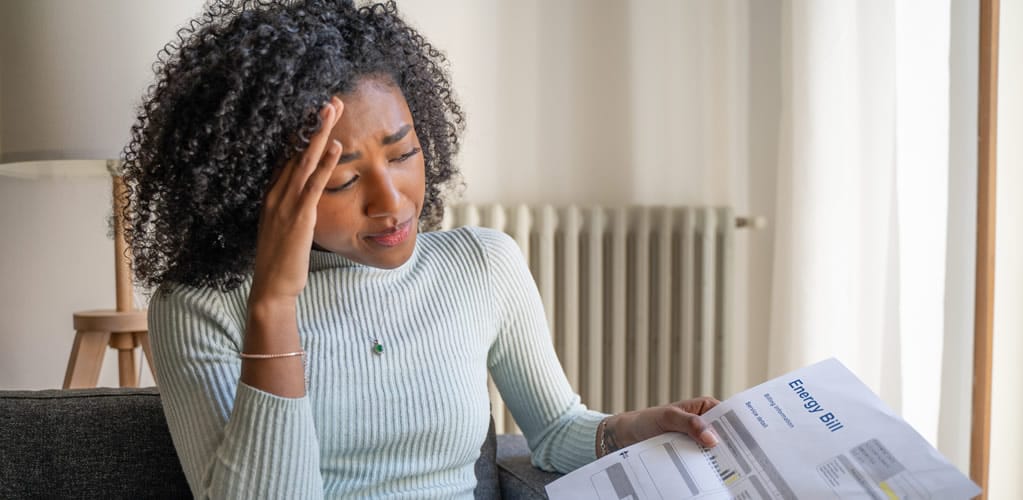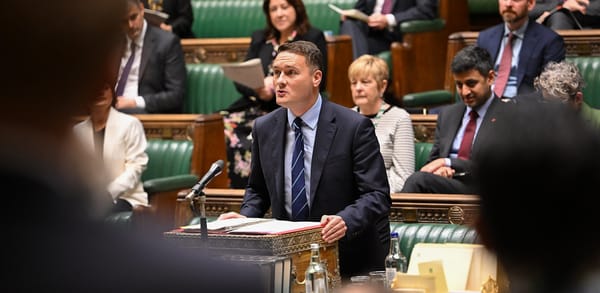Understanding your energy bill support and discounts
Rising energy prices have left many people feeling anxious about how to pay their bills. Here are much-needed information and guidance about cost of living support and consumer rights.

Rising energy prices have left many people feeling anxious about how to pay their bills. Here are much-needed information and guidance about cost of living support and consumer rights.
First published: August 2022.
This is the first in a new series of articles that provide much-needed information and guidance about cost of living support and consumer rights. Future pieces in the series will cover topics including welfare benefits, disconnection and prepayment meters, and non-payment of bills.
Rising energy prices have left many people feeling anxious about how to pay their bills. With the recent huge energy price cap hike and a cold winter ahead, we want consumers to be aware of the support they are legally entitled to receive from energy suppliers and through government support and discount schemes.
We hope this information helps lessen the hardships and stress that come with worsening energy bills for UK households.
Direct financial support
The Government has made some financial support available throughout the year.
People living in homes that fall within council tax bands A – D, around 80% of households, are entitled to a £150 council tax rebate. If you have not received this or been contacted by your council about it, you should contact them directly. You can use this postcode search to find your council’s contact details.
Councils have also been given discretionary funding to help people in need, regardless of their council tax band, so check if you are entitled to any other support.
Additionally, all homes will receive a one-off £400 energy bill discount from their supplier, which will not need to be repaid. The discount will be directly applied to your energy bills over a six-month period from October, no matter how you pay for your energy.
If you pay your bills by direct debit, the discount will either be applied directly to them or as a refund into your bank account each month. If you pay by credit or debit card, suppliers should add the discount as credit to your account in the first week of each month.
Deductions will be added directly to smart meters in the first week of each month and those with traditional prepayment meters will get a voucher from their suppliers.
If you live in rented accommodation and your landlord passes on the increased cost of energy to you, they should also give you this discount, as they will have received it already.
Priority Services Register
Energy suppliers have a legal obligation to operate a Priority Services Register and to support customers who need more help because of their personal circumstances or because they are in a vulnerable situation. If they fail to provide support it may amount to unlawful discrimination.
Ask your energy supplier(s) to put you on their priority register if your household contains:
- anyone of state pension age
- anyone with a disability, a long-term health or mental health condition
- anyone with hearing or sight impairment
- anyone recovering from an injury or hospital stay
- a pregnant person or young children (under five years old)
- anyone with extra communication needs e.g. literacy or language.
If you need additional support, but don’t fall into any of the above categories, you should contact your energy supplier, as you may still be entitled.
Warm Homes Discount Scheme
Some suppliers are part of the Warm Homes Discount Scheme, which gives people who receive pension credit or are on a low income and certain means-tested benefits help with their electricity or gas bills.
If you are eligible, your supplier will let you know in November or December, and you will receive a one-off £150 discount on your bill between October and March.
IN THE SAME SERIES:



Charitable trusts run by energy suppliers
Some energy suppliers operate or fund charitable trusts to help their customers. For example, some help customers repay debt. Though voluntary, if adequate steps are not taken by energy suppliers to ensure customers are aware of the support that is offered and to assist those who need help making an application, it may amount to unlawful discrimination. Details for some of the trusts can be found here.
Home Energy Efficiency Improvements
There are some funded schemes available. However, the criteria varies, so check with your local council and any energy supplier (not just your own) to see if you are eligible.
Cost of Living Payments
If you are a pensioner who’s eligible to receive the Winter Fuel Payment, you should automatically receive an extra £300 Pensioner Cost of Living Payment top-up this winter.
Disability benefits claimants who have received the following benefits since 25 May 2022 are entitled to receive a one-off Disability Cost of Living Payment of £150: Attendance Allowance, Constant Attendance Allowance, Disability Living Allowance for adults or for children, Personal Independence Payment, Armed Forces Independence Payment, War Pension Mobility Supplement and Adult or Child Disability Payment (Scotland only).
Means-tested benefits claimants receiving the following benefits should automatically receive a one-off £650 Cost of Living Payment, split into a summer and an autumn payment: Universal Credit, Jobseekers’s Allowance, Employment and Support Allowance, Income Support, Pension Credit, Child Tax Credit and Working Tax Credit.
Report a Cost of Living Payment if you do not receive it.
Debt support
If you are facing significant energy bill debt and are not able to pay it off in a reasonable time, there are now a number of debt relief schemes recommended by the Government that can help you.
You can find more information about these schemes here.

This article is based on guidance commissioned by Good Law Project from Adam Straw QC, of Doughty Street Chambers, and Tom Royston, of Garden Court North.
The information, content and material above is intended as a general guide, is subject to change and does not constitute any form of legal advice. It should not be relied on or treated as a substitute for specific advice relevant to your particular circumstances.
GOING FURTHER:

|

|

|
— AUTHORS —

|
▫ Good Law Project, a not-for-profit campaign organisation that uses the law to protect the interests of the public. ⚖️ GoodLawProjectonly exists thanks to donations from people across the UK. If you’re ina position to support their work, you can do so here. |
Sources
- Text: This piece was originally published in GoodLawProject and re-published in PMP Magazine on 6 September 2022. | The authors write in a personal capacity.
- Cover: Adobe Stock/Paolese.






[Read our Comments Guidelines]